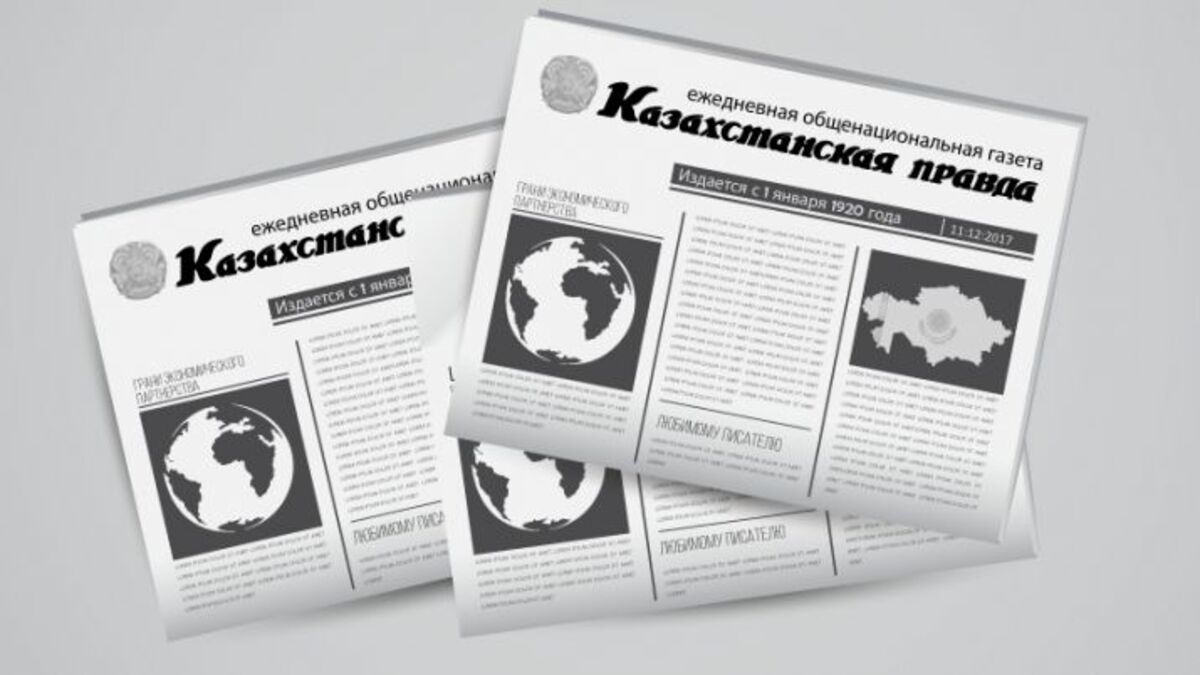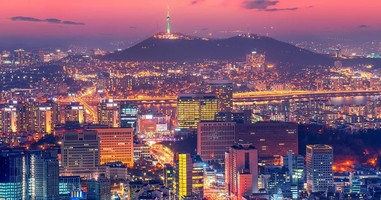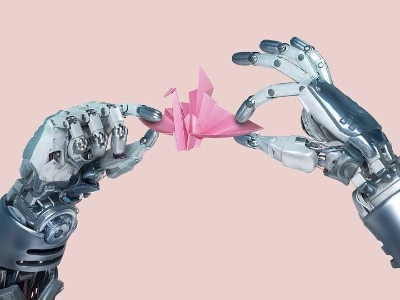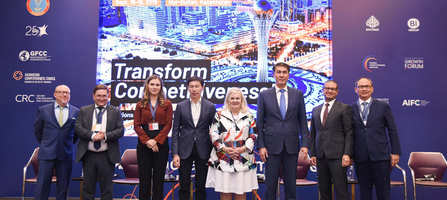
News
Three perspectives on problems
4 February 2022


Kazpravda newspaper
sources
Often, micro and small businesses are a result of people simply not being able find a job with an acceptable wage. At the same time, the number of medium-sized companies is decreasing. But they are, as a rule, the main actors of development in healthy economies. They are the most flexible, ready to transfer technology and knowledge, and are also interested in hiring high-quality human capital.
It is important to radically revise legislative regulation, which reduces incentives for the transition from small to medium-sized businesses.
These are, first of all, disproportions in tax regulation, regulation of labor relations, participation in state-regulated procurement.
The beneficiary of the reforms should be, in a good sense, the national bourgeoisie. In my understanding, these are not those who live on rent - administrative, regulatory or real estate rent, but those who link their future and the future of their children with our country.
Another point, an often hushed up one at that, is that in a developing country at the stage of growth it is simply impossible to achieve an equalization of territorial development. There will always be losers and winners. The reformatting of space is an inevitable process of transition from a distributive to a truly market economy.
Yes, it will lead to an increase in social tension. Therefore, the current or next Government will have to solve the problem of Zhanaozen. This city is supported only by the Uzen oilfield, where there is little oil left. And the situation is similar in the majority of our large single-industry towns. To transform Kazakhstan into a sustainable state, it is necessary to increase the inclusiveness of socio-economic relations, vertical and horizontal lifts.
In general, it is very important not to rush right now. All the quick wins that could have been achieved have already been achieved. There is hard work ahead.
The key factor of well-being is wages.
The problem of the vast majority of countries, including Kazakhstan, is a high level of income inequality among the population. One of its forms is when a low-paid worker receives a salary ten times less than a top manager. This situation is noticeable not only in the company, but also goes beyond that.
In a number of OECD countries, “wage-fork,” the difference in salaries within the company, is defined by law. That means we have gaps in our legislation.
We have to add low wages to income inequality. It makes no sense to assert the obvious truth that salary is a key factor in well-being. A person works, sometimes risks life and health, agreeing to dangerous and harmful conditions, all to get paid. And, in fact, the January riots were a manifestation of people's dissatisfaction with low incomes. Workers “shout” about the problem, everyone in the Government knows about it, but it has not been solved for years.
According to statistics, in 2021, the average salary in Kazakhstan amounted to 212 thousand tenge. However, it is difficult to rely on this data as it is unknown how objective can be the data regarding incomes of those 3 million self-employed.
For many years the government keeps promising to start procedures for the ratification of the Convention of the International Labor Organization No. 131 "On the establishment of minimum wages with special regard to developing countries." The problem is yet to be solved.
What is special about the convention? The fact that the country that ratified it determines the size of the minimum wage (MW) according to the legislatively established methodology, which in turn must be agreed upon by the three parties of social partnership: employers, trade unions and the state. All parties are equal and voluntarily involved in the process.
It is impossible to implement MW randomly, with no due consideration. This is a rather complex process. Trade unions have developed and submitted proposals to the Government on all the details of the evaluation methodology and the procedure for establishing. They take into account the interests of all parties: a salary should provide a decent life for an employee, an opportunity for an entrepreneur to invest, and the trust of citizens for the state.
Wages serve as a kind of "force" linking the economy and the social sphere. I would compare them to two sides of one object. If there are problems in the economy, they will affect the "social sphere," and vice versa - unresolved social problems hinder the development of the economy. Therefore, it is necessary to understand the balancing role of wages: what is an expense for entrepreneurs, but income for employees. On the basis of such interdependence, it is necessary to solve the main task of Kazakhstani society - the creation of a new model of the economy.
President Kassym-Jomart Tokayev said that we will build a socially oriented market economy. The EU countries are good examples of that. Let's see how the social sphere and the economy interact there. In other words, how do governments manage to achieve, on one hand, the sustainable development of the market, which is dominated by small and medium-sized businesses, and, on the other hand, the welfare growth of the population with a low level of income inequality?
The answer is surprisingly simple: the institutions of social partnership function effectively in these countries! Yes, it is the social partners who jointly find an agreed solution to any issue raised by at least one side.
The mechanism is simple, but in order for it to work for us, it will take a lot of work from all parties. In Kazakhstan, the state has decided and continues to decide everything on its own. This is an irrefutable fact.
Without bringing order to the institution of social partnership, without backing it up with the law “On Social Partnership” and without making social dialogue the first principle for making coordinated decisions, first of all, on the most difficult issues of economic and social development, we will not be able to ensure progress in the formation of a new society.
The Kazakh economic model was created in the 1990s, I call it the “redistributive” model. For the first ten years, it worked efficiently: it extracted and exported natural resources (oil, coal, ores, etc.), supported enterprises of primary and secondary processing, whose products are classified as raw materials.
The main thing was that the budget was replenished and even overflowed. This pleased the authorities, who were in the euphoria of financial "omnipotence". The oligarchs also triumphed.
However, the two global crises of 2008 and 2014, as well as a number of less destructive external shocks, revealed a dangerous instability of the system - the economy turned out to be extremely non-adaptive to changes in external and internal conditions. Even today it can collapse at any moment, for example, from a sharp change of mood of large oligarchic capital.
It is clear that fundamental problems cannot be solved only by updating strategies, programs, projects or entire policies. Yes, these are important economic institutions, but, as the world’s renowned modern institutional economists recommend, they must flexibly adapt to new circumstances, to unpredictably changing conditions.
All our efforts will be in vain without a radical update of the model itself. It is precisely under the new model of the economy and the social system, under their single pivotal axis, that the framework of economic and social policies and programs is being built. The supporting element of the construction of the institutions themselves, as I have already said, should be the institution of social partnership.
If so, then it is clear that even hundreds of smart heads generating thousands of unique ideas will not create a workable system if they diverge in the vision of the whole model. Unfortunately, the limited resources necessary for reforms are being wasted so far: intelligence, finances, time and, most importantly, the trust of the population.
Independent trade unions are trying to do something useful in a number of ways. Recently, 17,000 trade union members signed a petition to ratify Convention No. 131 and prepared other well-elaborated proposals that are now in the Government offices. I hope that after the tragic events, which, apparently, should have happened in order for the authorities to pay attention to the fact that they have someone to conduct a dialogue with, the proposals of the trade unions will be treated responsibly. After all, before their initiatives and documents were simply put in office shelves and disappeared in the bowels of ministries.
Nothing will change in Kazakhstan until the economic model changes and we become a civil society. What is being done now is a process for stage clearing for new economic reforms.
A unified social and economic model should be built around a radical and powerful core idea. Professor Ludwig Erhard, who was entrusted with the post of Minister of Economics in post-war Germany, did that one time. He pulled the country out of the crisis, discarding the authoritarian remains and building a socially-oriented model of the economy, which works effectively to this day. I am convinced that such an idea can be realised in Kazakhstan, but they just do not want to notice it yet.
There are positive expectations
Magbat Spanov, expert at the Institute of World Economy and Politics
The reasons for the tragic events that took place in January, I believe, were primarily macroeconomic problems - an increase in the number of poor people, a decrease in GDP, and the negative consequences of the pandemic. The previous Government repeatedly promised to solve the problems of the population, but, unfortunately, this did not happen in the end.
In 2020, the President announced an anti-crisis program several times, but it was never adopted. Instead, the Government focused on amending the Strategic Development Plan of the Republic of Kazakhstan 2025. We implemented these changes in 2021 for quite a long time - 7-8 months. Therefore, I was very surprised when, instead of a clear analysis of the difficulties in 2020 and the lessons learned on economic actions and decisions, I saw only another aspiration to a “bright future.”
Today we are facing very big challenges, especially in the economy. Most of the population does not trust leaders and will closely monitor what is being done at the top. In addition to trust, effective reforms require several things: the first is time, and we don’t have it, the January events showed that the population does not want to endure it anymore; second, we need ideas and financial support for reforms.
It would seem that everything is in order with the latter, we have the National Fund, but I believe that it cannot be used at all: the attitude towards oil and gas resources is changing in the world, and, perhaps, in the future they will not be able to generate such significant financial income.
I would highlight a few more controversial points. Firstly, as soon as we have some kind of problem, a new state structure is immediately created for it, and this is wrong. We have already spawned so many economic departments that are responsible for each direction of macroeconomic policy! You don't need to run after problems like the fire brigade, you need to prevent them.
Secondly, for ten years now I have been saying that the country should have a single budget. We have three levels of budget - the state budget, money from the National Fund and development institutions. And as in the fable of the swan, cancer and pike (a Russian fable by Ivan Krylov), we do not know where we are investing.
From this point of view, I consider the announced reform of the Samruk-Kazyna fund to be effective. It is necessary to at least get closer to the indicators of the late 1990s, when the country's budget was 85% formed by the private sector and only 15% by the state.
The very idea of creating a fund was correct, but the implementation failed in the absence of a management culture. Unfortunately, we have not yet passed a very important transformational stage of the initial accumulation of capital. And the redistribution of property is already coming.
Why is the fight against corruption more like fighting a shadow? Because we do not control the actual costs: the general (income) declaration is constantly postponed, off-shore zones are still open for the export of capital.
Statistics data is not good enough. Last year, when, according to the World Bank, the number of poor in our country increased by 2.5 times, I literally shouted that it was necessary to solve the problems of the poor. Also, from my point of view, there is no such thing as self-employed! There are either employers or employees. Those who work for themselves are also considered employers. And we still operate with such a philosophical term as productive and unproductive employment!
Another deferred problem is the containment of inflation by administrative methods, as it is happening now. If we hold prices for a long time, there will be a shortage, because we have not begun to consume less.
The fact that they froze public services and set marginal prices for fuel and lubricants for six months, on one hand, is good in the current situation. But then deferred inflation may exceed the given corridor even more, and no amount of administrative shouting will help.
The economy has its own laws, and economic methods should be applied - to create stable jobs, the economy should become export-oriented, and the credit and financial system should be stable so that businesses can plan their development in a calm manner.
The President and the Government should not only identify problems and give instructions, but also directly participate in their solution, they should control and regulate. We need systemic work to create a favorable economic environment, especially in the regions. I remember how in the 1990s, when innovations were introduced into the national economy, members of the Government traveled to the regions, at cluster meetings they explained what this or that reform meant. And they collected not only those who were positive about the reforms, but those people who doubted them as well.
This is no longer office work. You can come up with any beautiful scheme, but if it is not supported by real actions on the ground, then it is worthless.
We need institutional changes. And, of course, the development of national culture. Unfortunately, I have not heard about the importance of this at any high level over the past two years, and after all, any economy is based on national culture, and the main tool for the implementation of many things is their advancement through science.
And yet I look at what is happening now with cautious optimism. I am very glad that they have begun to reorganize the management system in the country, starting with the same “ROP Operator.” Part of the population has positive expectations. Therefore, the current administration has a complete carte blanche, and the main thing now is not to make mistakes in the implementation of certain programs and not betray the expectations of society.
all publications











